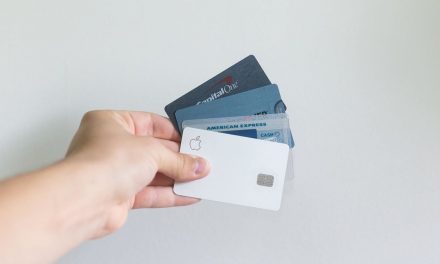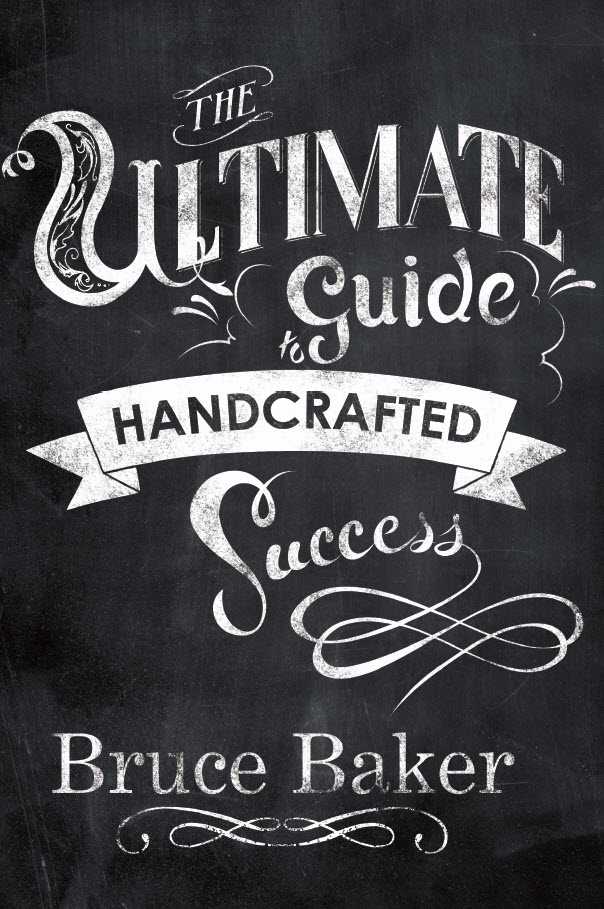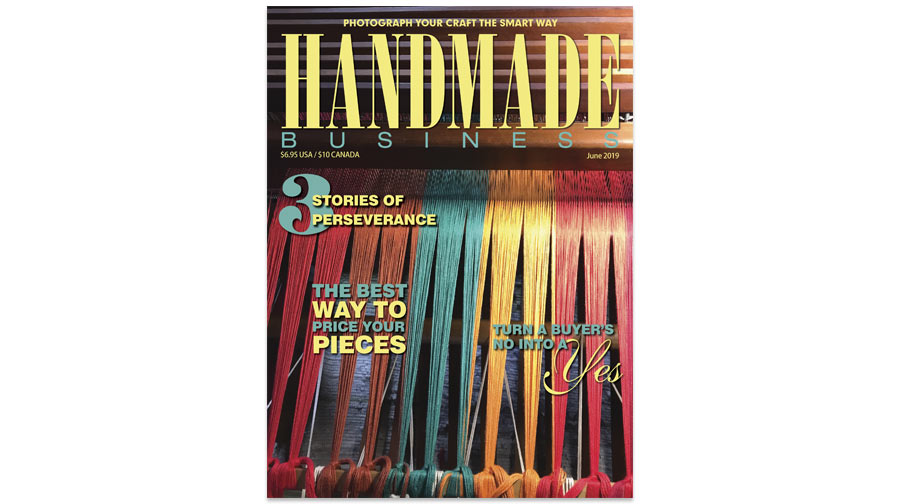By Brenda Flynn
In today’s world, cash might still be king, but to run your handmade business efficiently and profitably, the consensus among independent artists is that you need to be able to accept credit cards. Many people no longer carry cash for many reasons, among them theft, impulse shopping, and the inability for some venues to be able to make change.
Things may have come a long way since I started out over fifteen years ago, with a manual imprint machine, a bag full of bank slips, and high transaction fees — at well over 4.75 percent per transaction. On the occasions when the internet is spotty at a show, I sometimes miss the old imprint machine, although I don’t miss having to call for verification on large transactions. It was such a waiting game, and patrons do not like to wait.
Researching point-of-sale service is right for you and your business style is mandatory now, with so many choices out there. Major factors that affect decisions are: transaction fees and rates, ease of use, and how quickly you receive your money. Low on the list among artists I chatted with is customer service. “I want to be able to use the app on my phone, and if I have to call customer service because I don’t understand it, then I don’t need it,” joked a mixed-media artist from St. Augustine, Florida.
It’s not as simple as you’d like
Credit card processing is confusing when it comes to nailing down the right rates, because your transaction amounts affect many of the rates quoted. The more money you pour through the card processor, the less your rates will be with many companies. Some companies, such as Payment Depot, have a very low transaction fee but requires a membership, won’t even sign you up unless you can guarantee at least $5,000 per month running through credit cards.
Credit card processing is a volume-based business for many of the service companies. Most of the larger ones have annual fees, additional transaction rates, different rates for different types of cards (air miles, points, etc.), and contracts that you cannot get out of once you’re signed up. If you thought buying a house was infused with paperwork and fine print, try reading a credit card processor contract.
Ease of using the application usually mirrors how hard it was to sign up. And getting your money right away? That might not be an issue, because all the companies I examined don’t hold your money. PayPal is an exception, which holds money in your personal account and not in your bank, but you may not get as much money as you think you were supposed to because of fluctuating rate structures. There are companies, such as Square or PayPal with flat transaction pricing, and these are the ones you may want to consider, whether you bring in $10,000 or $200 per show.
What do artists prefer?
By far, the artists that I have spoken with prefer using Square, which was originally called Square Up. Out of 10 artists at a show that I exhibited at and whom I I recently queried about their credit card processing company, two used a service other than Square. “I love the fact that it’s super easy to use on my iPad, and when I don’t have internet at a show I can use their offline feature,” said Caron Rogers, who shows her whimsical functional pottery pieces in the Midwest. “I used to use PayPal, which is good, too, but I bought the iPad stand and a receipt printer from Square after I signed up, and it’s been perfect so far.
I asked Rogers why she switched, and she said it was the accessories and support hardware that changed her mind on services, although a slight difference in cost was a factor. “I pay a few cents more per transaction if I have to key something in with Square, so I set it offline at almost every show. PayPal, I think, was about the same rate, [but] I can’t remember. But, they had no offline feature.”
However, another artist, who preferred not to be named, never takes credit cards for payment anymore. “I used to, and it was more convenient for buyers, I think, but when the IRS started tracking the transactions, I stopped. And I hated paying for the fees they charged. Most of my buyers, and certainly my collectors, now know I don’t accept anything except cash. Most big shows have ATM machines available for people,” he said. This artist insists he hasn’t lost any sales because of his cash-only policy. “There are a lot of small companies and tradesmen that don’t accept credit cards, and I’m just one of them.”
For those of us that do continue to use credit card processing companies, the range of motivation for using one company over another is wide. Each has a different consideration, such as lower rates for higher volume, available hardware for print receipts, offline card acceptance, or a no-credit-check policy.
There are many point-of-sale companies out there, but most of them are geared to a physical location rather than applicable to the handmade art and craft show industry. Many of them have limits, require credit ratings of over 700, and require annual fees. As I said before, you must do what you think is right for your own business style, but choosing a fluid, easy-to-use and relatively inexpensive point-of-sale system to accept credit cards gets my vote.
ProPay
Pros:
- Three rate plans to choose from with lower transaction rates
- Availability to use in brick-and-mortar locations with purchased hardware
Cons:
- The same three rate plans have annual fees
- $3,000 limit per month on transactions
- Bluetooth readers not available yet
Square
Pros:
- Easy-to-use application
- Tracks your sales history, taxes, and fees
- Offline mode
- Free basic readers (Bluetooth and swipe for $49 — all platforms)
- No contract, cancellation, or withdrawal fees
- Trusted company (nine years)
- Secure processing
- Online management
- Flat transaction fees; no annual fees
- Ability to purchase and use hardware for brick-and-mortar locations
- Offers email marketing starting at $15/month
Cons:
- Slightly higher transaction and upgraded card reader fees
PayPal
Pros:
- Acceptance of international currency/cards (small foreign transaction fee)
- No contract, cancellation, or withdrawal fees
- Trusted company (20 years in business)
- Secure processing
- Online management
- Flat transaction fees and no annual fees
- Bluetooth chip and swipe reader ($24.99 and works on all platforms)
Cons:
- Users need to move money from a PayPal account to a bank account
- No hardware for brick-and-mortar locations






